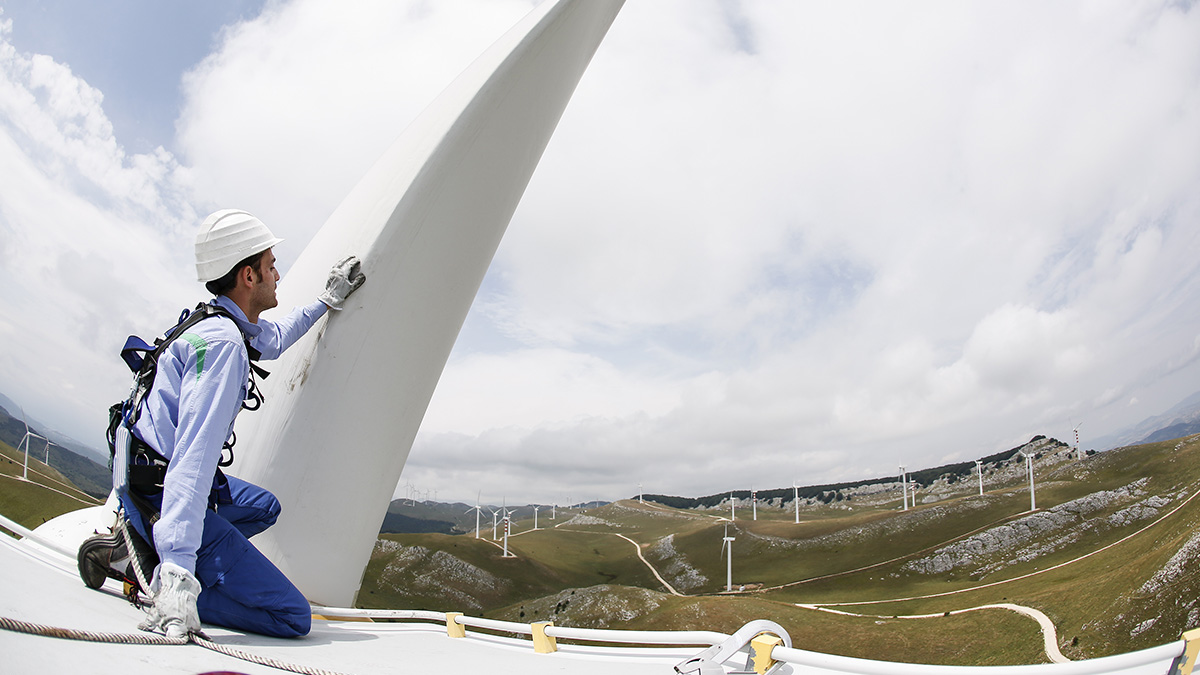News
What is the wind industry doing on skills and education to deliver a fair transition?

24 November 2022
On 16 November WindEurope Deputy CEO Malgosia Bartosik spoke at the European Employment & Social Rights Forum, organised by the European Commission. She presented some of the initiatives taken by the wind industry to ensure that it has the right talents to deliver the energy transition.
Europe wants 510 GW of wind energy by 2030, up from 190 GW today. This is a significant increase in the volume of projects needed to be installed in a very short time.
The European industry will need to fill at least 150,000 new positions, from today’s 300,000 jobs to more than 450,000 in just 8 years.
This rapid development poses some challenges:
- Risk of skills shortage. Managers, engineers and technicians are currently in highest demand and vacant job positions are already difficult to fill.
- New skills needed from people working in or entering the industry, especially in digitalisation, ICT, robotics, Health and Safety.
- Reskilling workers from other sectors, such as coal mining. And improving the diversity and inclusiveness of the sector. This is a must-have if Europe wants the green transition to be a just transition.
- Harmonising training requirements and skills across the EU.
Over the past years, the wind industry has taken various initiatives to meet those challenges.
The first step was to analyse the skills needed in the wind sector to evaluate the demand and normalise training at European level. Educational institutions, universities and training centres worked together with wind energy companies and trade associations such as WindEurope to do this mapping exercise. EU-funded projects like SKILLWIND helped develop training modules and programs based on those findings. Today several organisations offer vocational training in wind energy, including dedicated teacher training and Health & Safety training.
But for the energy transition to succeed, it must be just. This means making sure that no one is left behind. The wind industry has launched several projects to reskill workers from other sectors. As coal mines are closing down across Europe former miners can be retrained to work in renewable energy. Their technical and professional skills are easily transferable to the wind energy sector, when provided with the right conversion training and certifications. In Romania, a new re-skilling program recently opened up in the coal city of Petrosani in the Jiu Valley. It is part of a wider project aiming to reskill some 8,000 people in the valley by 2030 and benefitting from the EU initiative “Coal Regions in Transition”.
In Poland, WindEurope together with the Polish and Ukrainian wind energy associations is helping to connect Ukrainian refugees with Polish energy companies through the Work4Wind career support platform.
Another important set of initiatives is related to education. The wind industry needs to inspire the talents of tomorrow. Last year WindEurope launched LearnWind, an online hub featuring a variety of educational materials for children of different age groups. Younger children can learn about climate change, renewable energy and the functioning of wind turbines with the illustrated book “Let The Wind Blow”, available in over 30 languages. Older children and adolescents can read inspiring stories from 21 people working in clean energy in the new book “When I Grow Up” – from why they’re passionate about their jobs to what subjects they studied and what skills they needed to do what they do now.
The books also aim at encouraging girls to consider careers in renewable energy. Despite some progress on gender balance much remains to be done: of the 1.2 million people working in wind energy globally, just over one fifth are women today.
WindEurope also ran a pilot project for teaching wind energy to 12-year old students at a primary school in Brussels. The programme was co-created by one of the school’s teachers, two university professors and WindEurope. Still in Belgium, the Offshorewind4kids project teaches basic engineering skills to kids in a practical way, building floating wind turbine structures at the seaside.
Today’s climate and energy security crises make all those efforts even more relevant. The green transition can only happen if there are the right people to deliver it. And in return it can offer immense opportunities for Europeans in terms of education, training and career. In her State of the Union address in September European Commission President Ursula von der Leyen announced that 2023 would be the “European Year of Skills”. In this context WindEurope joined the Pact for Skills, making concrete commitments to ensure that the industry has the right workforce to deliver a timely energy transition.

